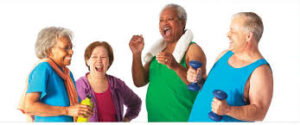 The percentage of our population aged 65 and older was 16.5 percent in 2019, up from 4.1 percent in 1900. By 2050 it’s projected to be 22 percent.
The percentage of our population aged 65 and older was 16.5 percent in 2019, up from 4.1 percent in 1900. By 2050 it’s projected to be 22 percent.
Sadly, how our society deals with older people is a travesty.
Trend to Devalue Personhood of Elderly
Thanks to a growing trend of viewing seniors as a burden and economic drain, the elderly are often: denied proper medical care; hunted down by organ harvesters; encouraged to kill themselves; or worst of all, killed without their consent.
The quest to rid the planet of what many consider “useless eaters” is reflected in the number of countries and states that have legalized euthanasia and physician-assisted suicide.
Belgium and The Netherlands (Holland) are the most aggressive of the six European countries in actively promoting such practices.
The trend has also spread in the United States. Nine states (California, Colorado, Hawaii, Maine, New Jersey, Oregon, Vermont, Washington), and the District of Columbia have legalize assisted suicide. Montana has assisted suicide by a court ruling.
While the practice is outlawed in Georgia there are ways in which the medical community rationalizes withholding treatment from elderly individuals.
Physician-assisted suicide involves a doctor providing drugs to enable people to kill themselves. Euthanasia, practiced in several forms, is the intentional killing of an individual by someone else.
At best, the elderly are viewed as comical, “past their prime” misfits. At worst, they are portrayed as sickly, helpless victims, unattractive, unproductive, cranky, miserable, less intelligent, and forgetful.
Our culture worships youth and encourages us to do everything possible to prevent—or even reverse—the inevitable results of aging. It’s hard to watch television very long without seeing cosmetic commercials offering ways to “take 10 years off your life.”
In 1969 Dr. Robert Butler, founder of the International Longevity Center, coined the term “ageism” to describe the process of systematically stereotyping and discriminating against older persons.
In the US Signs of Aging are a Stigma
For many, the physical signs of aging—sagging, wrinkling, and graying—have become a social stigma they are forced to accept or seek surgery to change. As a result, many elders become withdrawn and reclusive.
In the workplace, older job applicants are less likely to be hired and are viewed as more difficult to train, more resistant to change, less suitable for promotion, and expected to have lower job performances.
Wrongful views of the elderly can actually have a negative impact on their health. Studies have shown that when seniors believe such myths, they are less likely to seek preventative care, suffer memory loss and poor physical functioning, and die earlier.
In short, you can become what you think.
Such attitudes about the elderly are both unbiblical and untrue. Job 12:12 says: “Wisdom is with the aged and understanding in length of days.”
Value of the Elderly
Ignoring that truth blinds us to the fact that millions of people in their 60s, 70s, 80s and beyond are still robust, active, functional, experienced, capable, and talented and want to remain engaged.
If stereotypes are positive—when older adults view aging as a time of gained wisdom, self-realization, and satisfaction—the results are positive.
History is replete with examples of people who were vital and active in their later years. For example:
- Grandma Moses was painting at 100.
- Pablo Picasso was creating drawings and engravings at 90.
- Albert Schweitzer headed a hospital in Africa at 89.
- Winston Churchill wrote a History of English Speaking People at 82.
- Benjamin Franklin effected the compromise that led to adoption of the U.S. Constitution at 81.
As a society, we need to learn from these examples and recognize that being older does not mean becoming useless. Think of society’s loss if those individuals had considered themselves too old to contribute.
At the same time, however, we need to be more sensitive to the needs of the elderly and not view them as a drain on resources.
Our aging population, coupled with rising healthcare costs, has promoted a serious debate about how far we should go in attempting to cure and to even treat the elderly.
Some have suggested that we’re investing too much time and effort in saving the lives of the elderly and critically ill.
So-called ethicist Daniel Callahan, co-founder and professor emeritus of the Hastings Center, has clearly rejected the Personhood of the elderly and promoted that older persons have a responsibility to get out of the way because, “…the future belongs to the young, who bring life and new vitality to the human species.”
“What a twisted view of God’s gift of life,” said GRTL President Ricardo Davis. “It’s one of the darkest examples of the denial of Personhood and the culture of death we face. Whenever possible, pro-life supporters need to make sure elderly friends and relatives are not mistreated, or written off, when facing the need for care. We also must be prepared to make sure assisted suicide laws are never enacted in Georgia.”
Sources: medrounds.org; agingwatch.com; newoldage.blogs.nytimes.com; theatlantic.com; heritage.org; U.S. Census Bureau.
By Wayne DuBois
Georgia Right to Life
Media Relations Advisor
